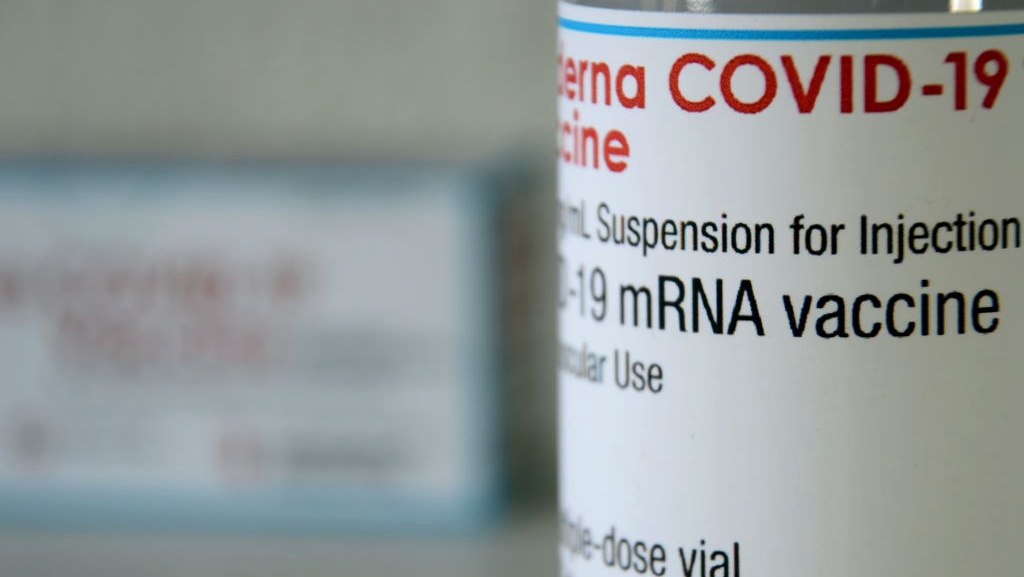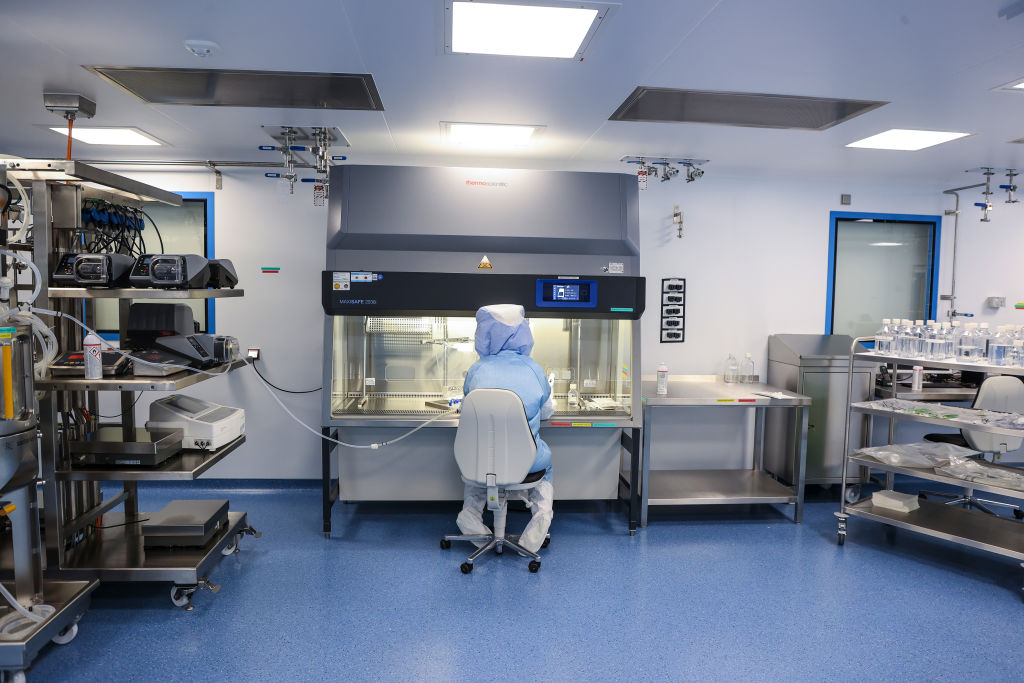
A vial of Moderna COVID-19 vaccine. /Getty
A vial of Moderna COVID-19 vaccine. /Getty
Editor's note: Dennis Etler is a current affairs commentator who holds a doctorate in anthropology from the University of California, Berkley. He conducted archaeological and anthropological research in China throughout the 1980s and 1990s and taught at the college and university level for over 35 years. The article reflects the author's opinions, and not necessarily the views of CGTN.
A recent article in the New York Times "Kati Kariko Helped Shield the World From the Coronavirus" recounts the difficulties and importance of mRNA research conducted by Dr. Kati Kariko over the span of decades and her struggles to stay afloat in academia.
Kariko needed grants to pursue ideas that seemed wild and fanciful and had difficulty getting funding even as more mundane research was rewarded. With the advent of new mRNA based COVID-19 vaccines, however, her efforts and those of her colleagues have been vindicated.
That being said, the saga of the mRNA COVID-19 vaccines has brought to the fore many contradictions inherent in the capitalist mode of production. It seems that many people are highly skeptical of this and other new technologies. But, not every new technology should be criticized and condemned.
That, unfortunately, is the attitude that many sincere people take. Their disgust with unbridled corporate capitalism, and its drive for global hegemony and imperialist war, leads them to question all aspects of the prevailing economic, social and political order in Western neo-liberal countries.
This, however, can quickly take on the trappings of neo-luddism, a reactionary philosophy that opposes many forms of modern technology. Hence, many self-avowed progressives in the West are against many forms of modern technology such as 5G, AI, digital currencies and facial recognition software, as well as new medical technologies such as the use of mRNA to treat diseases and create vaccines.
For those living in the West, this skepticism may seem well-warranted. Western corporations which control these technologies are interested only in the bottom line, i.e. what's in it for them. They will utilize new technologies to capture markets and tie people and nations into their orbit so as to milk them for all they are worth. These technologies are not used to enhance the public good but to maximize private profit.
That does not mean, however, that no benefit accrues to the public with their use, but that the motive behind their utilization frequently runs counter to the interests of the general public, thus creating a general antipathy among many to their application.
A case in point is the advent of mRNA vaccines for COVID-19. The technology employed was a long-time in the making, the result of painstaking research undertaken by unheralded scientists in many countries who all contributed to its development.

An employee prepares raw materials for mRNA at the BioNTech SE laboratory in Marburg, Germany, March 27, 2021. /Getty
An employee prepares raw materials for mRNA at the BioNTech SE laboratory in Marburg, Germany, March 27, 2021. /Getty
Under normal circumstances, the new technology would be tested over a number of years to ensure its safety. But the pandemic created a medical crisis that required immediate attention. Caution was thrown to the wind and the U.S. under the Trump administration subsidized with billions of U.S. dollars a couple of Big Pharma corporations to develop at "warp speed" mRNA vaccines for COVID-19. They successfully did so and got emergency approval for their widespread use.
There are, however, a number of liabilities in their adoption. These include the need for deep cryogenic storage of the vaccine complicating its deployment, particularly in lesser developed countries where the facilities for cold chain storage are limited, the difficulties in producing them, their high cost of production and the fact that their long-term side-effects, if any, are untested.
More traditional inactivated virus vaccines on the contrary do not require cold storage, can be used in a wide variety of situations, are cheap and relatively easy to produce and their technology is tried and true. Their long-term effects can thus be better predicted. Moreover, their production can be done in many countries that lack the conditions needed to produce mRNA vaccines.
The Chinese vaccines are of this type. They were developed and produced in the same amount of time as the Western mRNA vaccines. But, whereas the mRNA vaccines are mostly limited to nations that are economically developed, can afford their high cost, and have the infrastructure needed to inoculate their populations, the Chinese vaccines can be easily used by less developed countries in the Global South who otherwise would have been left out in the cold.
If it wasn't for the Chinese vaccines, and those produced using somewhat different technologies such as the Russian Sputnik V vaccine, the world would be in a far more dire predicament. Less developed countries in Africa, Latin America and elsewhere would basically be out of the loop and unable to obtain vaccines in a timely fashion.
This speaks to the main difference between China's and the West's approach towards COVID-19 vaccines. The Western approach is corporatist, concerned primarily with making money and serving their own constituency, whereas the Chinese approach is concerned with creating a shared public good from which all nations and people can benefit.
(If you want to contribute and have specific expertise, please contact us at opinions@cgtn.com.)

